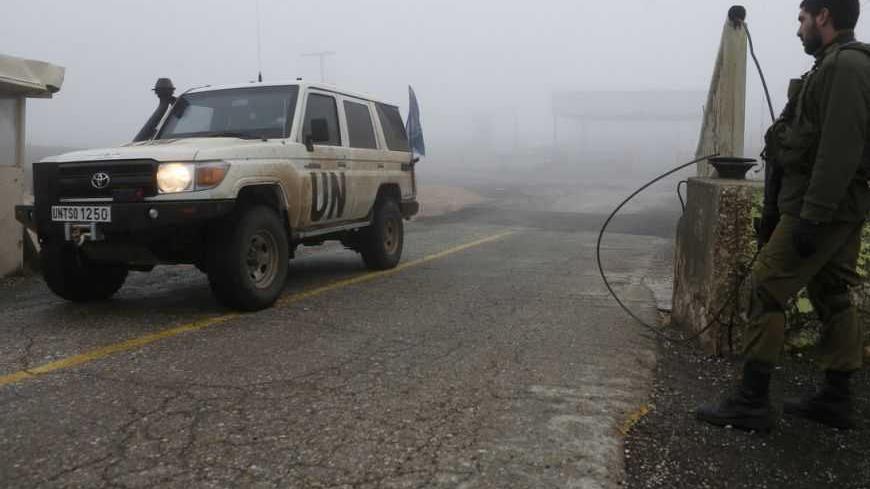The Jan. 30 Israeli airstrike in Syria, which allegedly targeted a convoy of weapons to be transferred to Hezbollah, refreshed the prospects of a regionalization of the Syrian battlefield, and in particular of a new clash between the Israeli military and the Party of God. Yet, following the operation, all parties showed cautious restraint. In fact, as counterintuitive it may seem, the Israeli strike may have attempted — and so far succeeded — to contain the crisis to the Syrian territory rather than to regionalize it. In other words, it can be read as a means to disconnect the Syrian front from the Lebanese one. To understand this logic, we need to get back to the strategic bargain that has been prevailing between Israel and Hezbollah since 2006.
For seven years now, the border between Israel and Lebanon has witnessed stability. At first sight, this has all the appearances of a paradox. The 2006 war was followed neither by a peace agreement nor a mere diplomatic initiative. Since then, the two sides did not disarm but prepared their forces to conduct the next war. Additionally, their regional environment has never been so unstable. Iran, the closest ally of Hezbollah, is under severe pressure: The regime endures a set of international economic sanctions crippling its economy, rumors of an Israeli attack on its nuclear plants are still in the air and the Gulf monarchies are openly aiming at Tehran’s spheres of influence in the Middle East and the Arabian Peninsula. Furthermore, in Syria, the battle has turned into an all-out war for Bashar al-Assad’s survival. As a result, Iran and Hezbollah are gradually supporting Assad’s militias like the infamous Shabihas and Jaish al Chaab. Finally, the Israeli operation against Hamas last November reminded us that the Gaza Strip could still quickly flare up.



